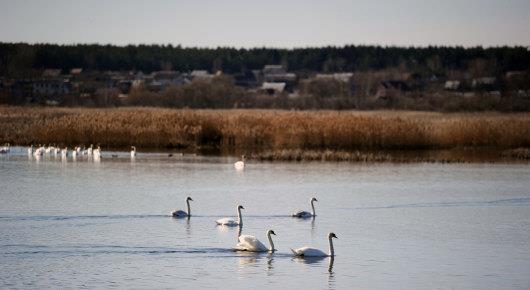Belarus signs four-year cooperation agreement with FAO

Developing agriculture, forestry and natural resource management to enhance rural development are important components of a four-year cooperation agreement signed here today between Belarus and FAO.
The FAO Country Programming Framework for the Republic of Belarus was signed in a ceremony at the Ministry of Agriculture by Deputy Minister of Agriculture and Food of the Republic of Belarus Alla Lomakina and FAO Regional Programme Leader for Europe and Central Asia Raimund Jehle.
“Priorities highlighted in the agreement reflect the country’s own priorities, in areas where FAO can add the greatest value, in line with its overall mandate, presence, and delivery capacity in Belarus, and in close collaboration with partners,” said Jehle. He noted that as the work unfolds, cross-cutting topics such as climate change, nutrition, statistics and gender equality will receive close attention.
The agreement supplements already existing programmes, and responds to the recent Russian recession and low commodity prices affecting the agricultural sector, which accounts for 8-9 percent of total employment in Belarus.
Agrifood production chain development, international market access
The first priority is to ensure greater efficiency and competitiveness of production and marketing for agriculture, the food-processing industry, fisheries and aquaculture. This means improvements in the agrifood value chain and integration into international trade.
FAO will provide technical support to strengthen Belarus’s capacity for food quality and safety control of agricultural and fish products, and guidance on minimizing risks coming from animal diseases.
Natural resource management, climate change
Under the second priority, FAO will contribute to strengthening established national programmes for conservation and use of plant and animal genetic resources, and provide assistance with adaptation and mitigation practices to counter climate change.
The overall aim is to utilize natural resources without depleting them, and to prevent the loss of Belarus’s ecological capital, for use by future generations.
Sustainable agriculture and rural development
FAO will contribute to the efforts of the Ministry of Agriculture and Food to promote job creation and self-employment opportunities for men, women and young people through rural development. Adoption of international approaches by the national statistical system, and greater efficiency in agricultural enterprises are among the objectives.
Through this cooperation, FAO will support Belarus in its efforts to achieve the Sustainable Development Goals of the 2030 Agenda – particularly the contribution of the agriculture, forestry and fisheries sectors. The Organization will also support implementation and monitoring of results under many of the Goals and their individual targets.
“We will be applying innovative international best practices and global standards with national and regional expertise,” said Jehle. “We look forward to collaboration and support from all concerned partners in bringing this plan to life.”
14 September 2017, Minsk, Belarus
